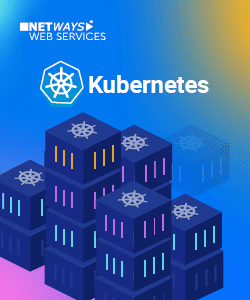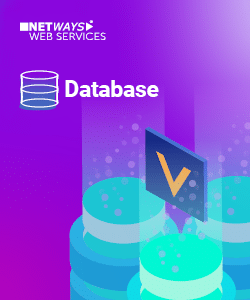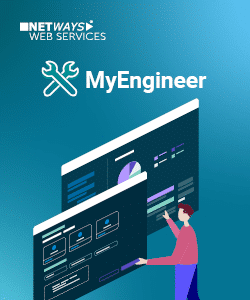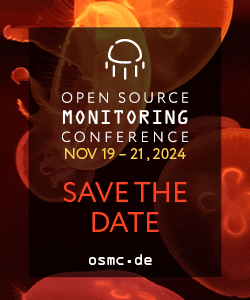
100 days till OSMC 2012, Eva gave the stage to Reinhard Scheck and his presentation on “Cacti Graphing Solution”. She then moved on to kick off an Icinga logo competition, looking for the best photo of the icon out and about.
Following on, Gunnar shared his tip for heap memory profiling with Massif while Ronny reminded us of Updian’s v0.4 release featuring yum support.
Bernd ended the week pondering the inconsistencies of data privacy laws and habits in the social media sphere, upon learning that state data privacy bureaus were reviewing company Google Analytics accounts in Germany.
NETWAYS Blog
Updian 0.4
Wir haben ja schon oft über Updian berichet (hier und da). Und seit Ende Juni gibt es wieder etwas neues von RobHost. Zu dem bisherigen Inhalt gibt es an sich nur kleinere Bugfixes, welche nun auch im Github mit verfolgt werden können.
Aber eine der wohl großen Änderungen ist der anfängliche Support von ‚yum‘ gestützten Systemen wie CentOS. Nun können also auch Administratoren solcher Systeme auf ein schlichtes und zentralen Update-Tool zugreifen.
Sind wir mal gespannt, was sich dann noch so in der Zukunft ergibt.
Weekly Snap: Update on Updian, SSO in Apache and Perl compilation with PAR::Packer

To begin, Ronny brought us up to scratch on Updian’s latest release. As previously introduced, Updian is a simple update engine for Debian. Compared to v0.2, the new v0.3 has a slicker interface, with sorted lists and generally clearer display of large lists and views. SSH connections can now be specified where the standard port 22 doesn’t apply, and different ports can be used on different servers. To top it off, users of ‘debian-goodies’ can try ’checkrestart’ for a colour-coded view of services for libs that need to be restarted.
Gunnar then introduced the handy PAR::Packer Perl module that compiles Perl scripts with their dependencies linked into a single binary. Platform independent, he showed how to install PAR::Packer on Windows with the help of CPAN and Strawberry Perl. For more info, he recommended http://search.cpan.org/dist/PAR/lib/PAR/Tutorial.pod
Last but not least, Lennart showed how to use ‘single sign on’ (SSO) in Apache with group-specific authentication in an Active Directory environment. Put otherwise, he set out to authenticate a web server via Kerberos ticket and check downstream, whether a user is in a group whose members may access a website. He began by creating a user in Active Directory, and generating a key on the domain controller to which the user is given a principal name. Then he copied the apache2.keytab file to the web server and used kinit to check the apache2.keytab for accuracy, and klist to determine the principal name in advance. Finally, he loaded mod_ldap, mod_authnz_ldap and mod_auth_kerb and configured the browser for SSO access.
Neuigkeiten bei Updian

Im Vergleich zur Version 0.2 hat die neue 0.3 auf den ersten Blick ein überarbeitetes Design, was das ganze Interface etwas ‚moderner‘ aussehen lässt und größere Listen und Anzeigen klar darstellt. Zusätzlich werden die Listen bei der Anzeige auch sortiert.
Des weiteren gibt es nun die Möglichkeit bei der Eintragung der Server auch einen gesonderten Port für die SSH-Verbindung anzugeben, wenn dieser vom Standard-Port 22 abweicht. Man muss also nicht mehr unnötige den Code anpassen, wenn dies bisher in Verwendung war und kann dazu auch verschieden Ports auf unterschiedlichen Servern verwenden.
Und zu guter Letzt gibt es auch eine neue Funktion in der Übersicht der Logfiles. Wer auf den Servern das Paket ‚debian-goodies‚ installiert hat, kann den Nutzen des Befehls ‚checkrestart‚ auskosten und sieht bei Änderungen evtl. Libs eine farblich markierte Übersicht, wenn bezugnehmende Dienste neu gestartet werden müssen. Dies ist vor allem bei scheinbar unkritischen Updates eine Hilfe.
Weekly Snap: ZFS on Linux, Updates on Debian, Speeches from OSDC 2011

Gunnar began by giving a thorough introduction to running a native ZFS on Linux. The file system cum logical volume manager boasts pool based memory usage, verifiable data integrity, snapshots and more features beyond other data systems on Linux. As ZFS source code’s license is not compatible with the Linux kernel, it must be separately installed with one of the two available ports. The 1st ) is based on the FUSE kernel interface and cannot support all ZFS features, but offers an Ubuntu package. The 2nd (http://zfsonlinux.org) implements ZFS as a native kernel module, but not yet stable. Here, Gunnar provided an example of the 2nd port method, installing on Ubuntu.
Marcus followed with his tip for managing Debian web updates with Updian. The PHP tool replaces the tedium of manual updates, by checking the server via SSH for apt-get updates. It then updates the package list, presenting it on the web front end. From there, servers can be selected to join an update queue to be processed accordingly. Of course, Marcus didn’t forget to demonstrate an Updian installation too.
Last but not least, Rebecca posted a few speeches from OSDC 2011 online. Those who couldn’t join the Open Source Data Center Conference, can now view the videos of a handful of presentations. These include Bernd Erk’s on “Automation in the Data Center” and “Monitoring with Icinga”, Ken Barber’s on “Advanced Puppet” and Thomas Halinka’s on “GlusterFS”. All are available from the OSDC website. Don’t miss the next event – register now for the upcoming Open Source Monitoring Conference on 29 – 30 November at special early bird rates till 15 August.
















